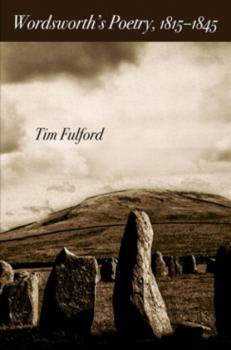ТОП просматриваемых книг сайта:
Tim Fulford
Список книг автора Tim FulfordАннотация
The later poetry of William Wordsworth, popular in his lifetime and influential on the Victorians, has, with a few exceptions, received little attention from contemporary literary critics. In Wordsworth's Poetry, 1815-1845 , Tim Fulford argues that the later work reveals a mature poet far more varied and surprising than is often acknowledged. Examining the most characteristic poems in their historical contexts, he shows Wordsworth probing the experiences and perspectives of later life and innovating formally and stylistically. He demonstrates how Wordsworth modified his writing in light of conversations with younger poets and learned to acknowledge his debt to women in ways he could not as a young man. The older Wordsworth emerges in Fulford's depiction as a love poet of companionate tenderness rather than passionate lament. He also appears as a political poet—bitter at capitalist exploitation and at a society in which vanity is rewarded while poverty is blamed. Most notably, he stands out as a history poet more probing and more clear-sighted than any of his time in his understanding of the responsibilities and temptations of all who try to memorialize the past.

